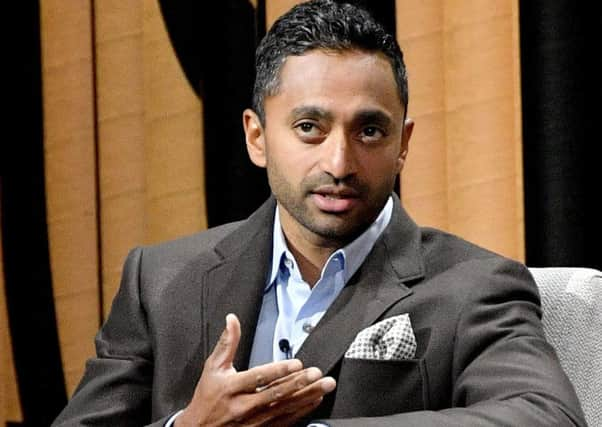Facebook is '˜ripping' society apart, warns former executive


Chamath Palihapitiya, 41, who was Facebook’s vice-president for user growth, said it and other social media providers were leaving users “vacant and empty”.
In a candid broadside at a Stanford Graduate School of Business event in California, he described the algorithms underpinning the likes of Facebook as “short-term, dopamine-driven feedback loops” which were “destroying” everyday society.
Advertisement
Hide AdAdvertisement
Hide AdHe said: “No civil discourse, no co-operation; misinformation, mistruth. And it’s not an American problem – this is not about Russians ads. This is a global problem. We are in a really bad state of affairs right now.”
Mr Palihapitiya said that the company “overwhelmingly does positive good in the world”, but warned that its ordinary customers were losing sight of what is important in life.
He explained: “We curate our lives around this perceived sense of perfection because we get rewarded in these short-term signals – hearts, likes, thumbs up.
“We conflate that with value and we conflate that with truth. Instead, what it is is fake, brittle popularity.”
Facebook, which has more than two billion active monthly users worldwide, has been the focus of widespread criticism in recent years for a range of issues, including censorship, data mining, and the rate at which it removes offensive material.
Prime Minister Theresa May has warned that Facebook and other technology companies must go “further and faster” in removing extremist content.
However, Facebook said it is a different company nowadays to one described by Mr Palihapitiya.
A spokeswoman for the firm said: “Chamath has not been at Facebook for over six years. When [he] was at Facebook we were focused on building new social media experiences and growing Facebook around the world.
Advertisement
Hide AdAdvertisement
Hide Ad“Facebook was a very different company back then and as we have grown we have realised how our responsibilities have grown too. We take our role very seriously and we are working hard to improve.”
She added: “We’ve done a lot of work and research with outside experts and academics to understand the effects of our service on well-being, and we’re using it to inform our product development.”